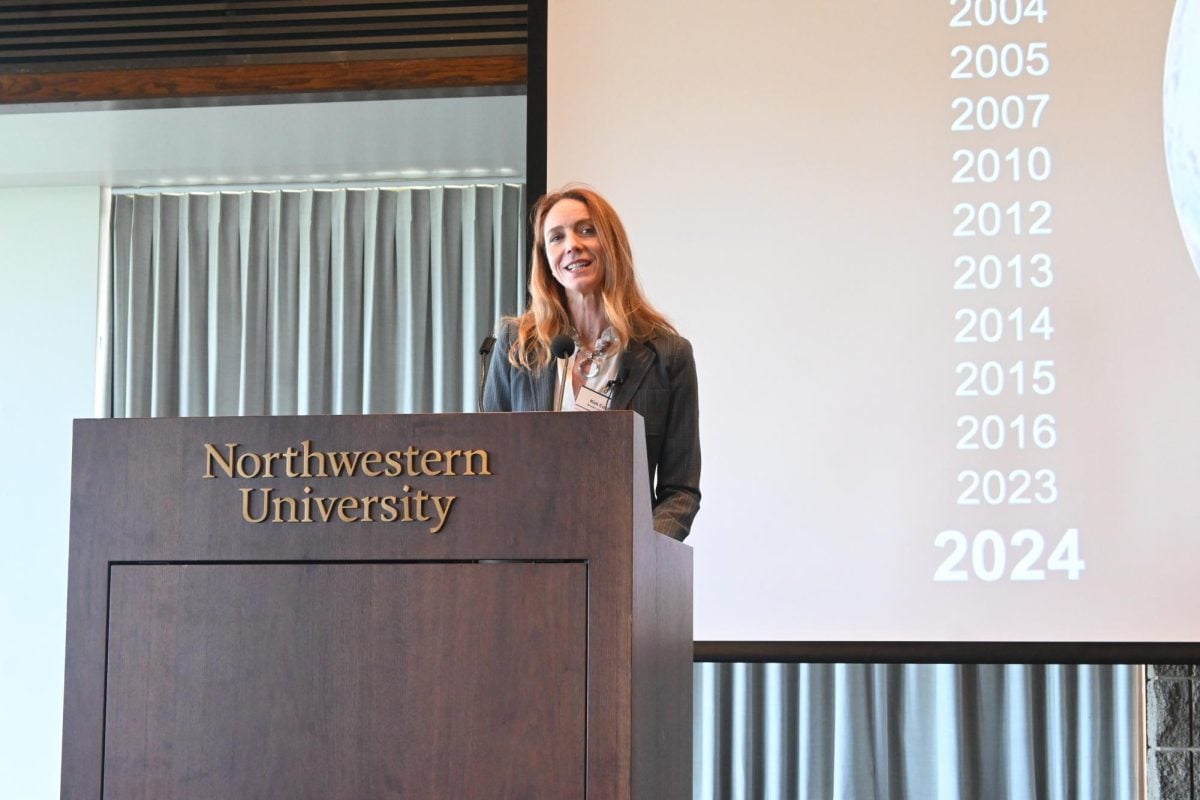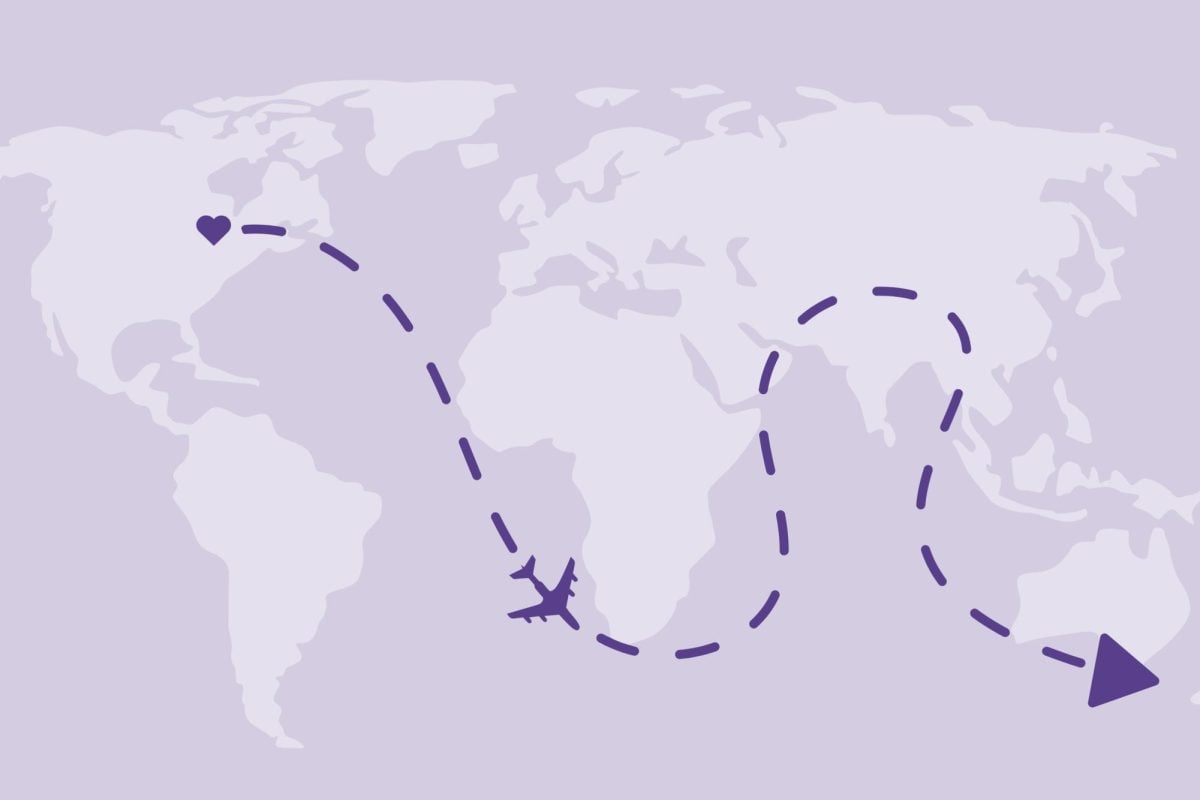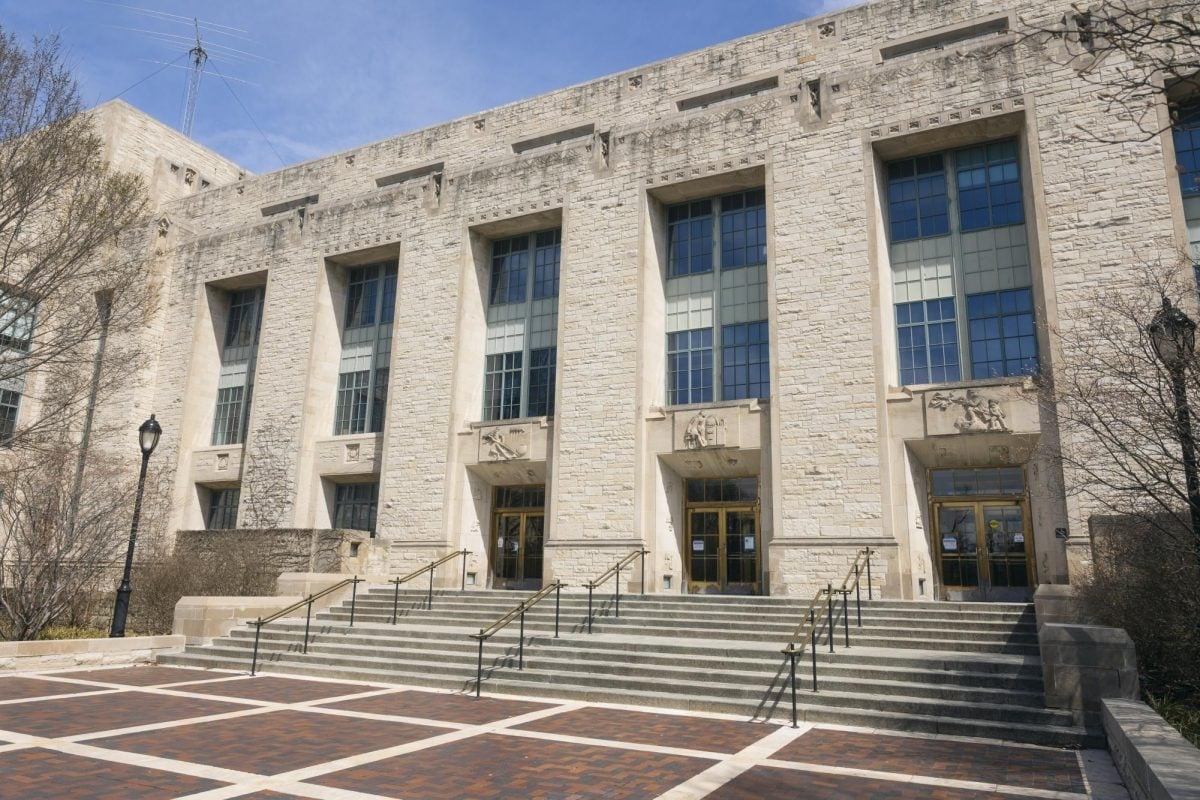The identity struggle facing second- and third-generation European and American Muslims can be overcome through pluralism, said Tariq Ramadan, a leading thinker on identity politics, at a Friday event in the McCormick Tribune Center Forum.
“Muslims are facing a very critical discussion,” he told an audience of students, faculty and community members.
The event, sponsored by the Buffett Center for International and Comparative Studies, began at 4 p.m. and was free and open to the public. It filled the auditorium to standing-room only, and some attendees sat in chairs in the lobby.
The lecture was Ramadan’s only speaking engagement in Chicago as part of a tour to discuss his new book, What I Believe, said Rita Koryan, assistant director of the Buffett Center. The event also included a question-and-answer session and a book signing.
Ramadan, named one of Time magazine’s most important innovators of the 21st century, said he last spoke at NU seven years ago, when he discussed “the reality and situation in France” with French literature students.
One of the world’s most prolific thinkers and a professor of Islamic Studies at Oxford University, Ramadan has been named 49th among Foreign Policy magazine’s list of the world’s top 100 contemporary individuals.
Negative perceptions of Islam, such as fear of the imposition of sharia, or Islamic law, are increasing in Europe and the United States, Ramadan said. He said controversy sparked from the debate over the possible construction of an Islamic center near Ground Zero highlights the importance of community-wide dialogue.
“‘(Islam) is a silent colonization, Islam is a threat,'” he said. “We have this (discourse) happening here.”
He also discussed the impact of globalization on the Islamic identity. Religious integration is already happening in many Western countries, he said.
“Being able to translate this reality into being fully Muslim (is) having the Western culture and accepting Islamic principles within the religious framework,” he said.
Muslims should actively contribute to their democratic societies, Ramadan said. He called on Muslims to act diplomatically but remain prepared for criticism.
It is legitimate for both Muslims and non-Muslims to question the Muslim identity, Ramadan said.
“(We need) to respect this sense of insecurity in society, but at the same time be able to fix and resist any kind of instrumentalization,” he said.
Some students said the lecture was part of a more complex discussion surrounding identity politics in the West. During the question-and-answer session, fourth-year religious studies graduate student Rahma Bavelaar asked about Ramadan’s stance on Muslims organizing politically to secure civil rights.
In response, Ramadan cautioned against engaging in a political discourse, saying it is sometimes best “not to do as they do.”
Bavelaar, who has previously attended two of Ramadan’s lectures in Europe, said Ramadan has been consistent in his speeches.
“He says, ‘Don’t adopt this victim mentality,'” she said.
Ramadan’s next book will discuss narratives and the notion of “extracting the past in order to construct the present,” he said.







